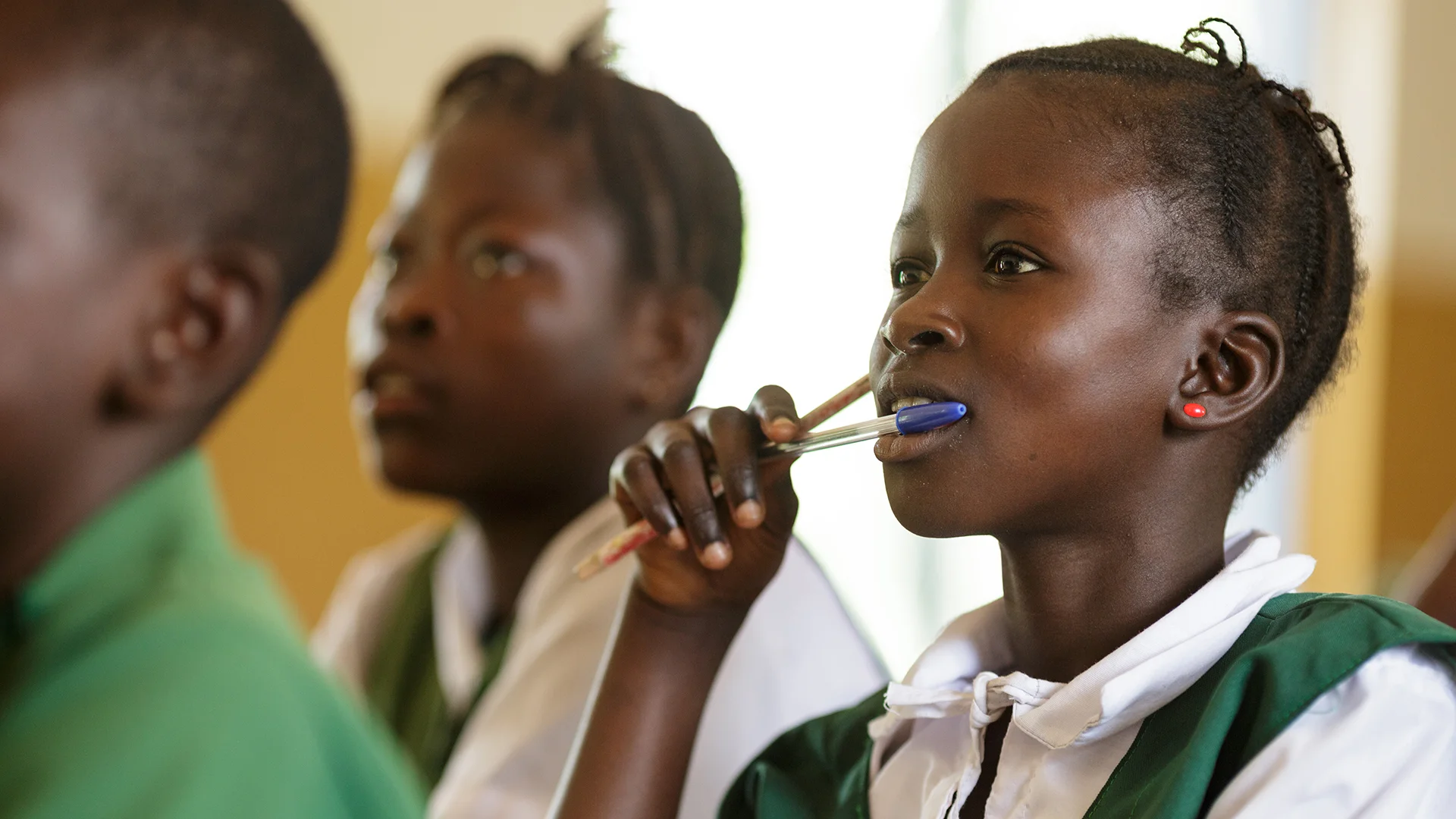Even before the outbreak of the COVID-19 pandemic, some 132 million girls worldwide did not attend school. It is estimated that at least a further 11 million girls will not return to school due to the pandemic. Yet investing in girls in particular pays off in many ways, including in economic terms. Education is one of the most effective solutions in the fight against poverty and population growth.
The situation
132 million girls worldwide do not attend school: 34.3 million of primary school age, 30 million of lower secondary school age, and 67.4 million of upper secondary school age. In countries affected by conflict, girls are twice as likely to drop out of school as their counterparts in politically stable countries.
55 percent of children of primary school age who do not attend school are girls. Of the approximately 781 million illiterate adults worldwide, nearly two-thirds are women.
A solution to the fight against poverty
In rural regions especially, many parents still follow the tradition of keeping their daughters at home and marrying them off early. Yet education for girls is a key factor in a country’s sustainable social, political and economic development. Educated girls marry later, have fewer children and learn to prevent diseases such as HIV/AIDS and malaria. Their children are healthier, better nourished and attend school more often. Education is one of the most effective solutions in the fight against poverty and population growth.
How UNICEF helps
Creating the right conditions: UNICEF finances the construction of school buildings, trains teaching staff and provides teaching materials. The Children’s Fund is committed to compulsory, free schooling, the installation of sanitary facilities and to ensuring that children in schools receive a hot meal.
Schooling: UNICEF advocates worldwide for all children, including girls, to have the chance to learn to read and write. The Children’s Fund also gives teachers training on modern teaching methods.
Education: Alongside school lessons, girls receive education on applied health care and hygiene. Access to medication and family planning support are vitally important for young women. Moreover, all those responsible have to be persuaded that society as a whole benefits in the long term if it is not only boys who get to enjoy a primary school education.
You can help too.
Education is the key to leading one’s own life. Your donation empowers girls and promotes their development. We thank you from the bottom of our hearts for your support.
